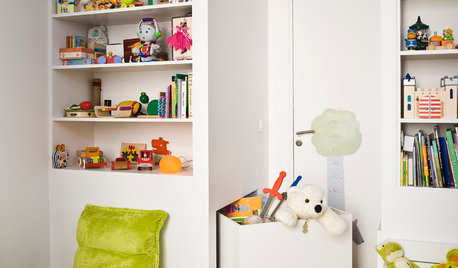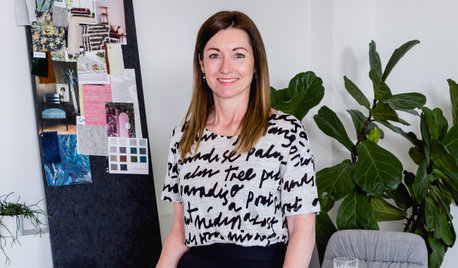Are you multi-lingual? Want to learn? Help others learn?
beesneeds
3 years ago
Related Stories

LATEST NEWS FOR PROFESSIONALS‘Trust Your Gut’ and Other Things Pros Learned on Recent Jobs
Five design professionals share lessons from projects that will help them with future clients
Full Story0

GARDENING AND LANDSCAPINGBe a Citizen Scientist to Help Wildlife, Learn and Have Fun Too
Track butterflies, study birds, capture stars ... when you aid monitoring efforts, you’re lending Mother Nature a hand
Full Story
MOVINGLessons Learned From a Stressful Move
As a designer, she’d helped others move. But her own move proved a bigger challenge
Full Story
LATEST NEWS FOR PROFESSIONALS‘Help Clients Narrow Down Choices’ and Other Advice From Pros
Home design and building professionals share tips they learned from recently completed projects
Full Story0

REMODELING GUIDESSee What You Can Learn From a Floor Plan
Floor plans are invaluable in designing a home, but they can leave regular homeowners flummoxed. Here's help
Full Story
GARDENING GUIDESHave Acidic Soil in Your Yard? Learn to Love Gardening Anyway
Look to acid-loving plants, like conifers and rhododendrons, to help your low-pH garden thrive
Full Story
WORKING WITH PROSInside Houzz: What You Can Learn From a Houzz Photo
Get access to the designer's info, product names, other photos in the project and much more by clicking on a Houzz image
Full Story
DECORATING GUIDESPro to Pro: Learn Your Client’s Thinking Style
Knowing how someone thinks can help you determine the best way to conduct an interior design presentation
Full Story
HOUZZ PRODUCT NEWS3 Designers on Early Career Mistakes and What They Learned
Three interior designers share the important lessons that have helped shape their businesses and lives
Full Story
PET PLACESPet’s Place: A Guide-Dog Puppy Learns the Ropes at Home
A puppy raiser brings Mister, an energetic retriever, into her home temporarily to help train him to be a service dog
Full Story




ci_lantro
Sammy
Related Discussions
Newbie - Lessons learned this year!!! What have you learned?
Q
I learned a new trick I want to share (reading text easier)
Q
Want to Learn How to Can!
Q
Help-want to learn to crochet so bad!
Q
Lars
maifleur03
bpath
aok27502
Elmer J Fudd
bpath
eld6161
bpath
Elmer J Fudd
kadefol
bengardening
patriciae_gw
sable64
Lars
HU-753479426
Alisande
1929Spanish-GW
Elmer J Fudd
Zalco/bring back Sophie!
Elmer J Fudd
1929Spanish-GW
Elmer J Fudd
1929Spanish-GW
Zalco/bring back Sophie!
Elizabeth
Zalco/bring back Sophie!
Elmer J Fudd
Elmer J Fudd